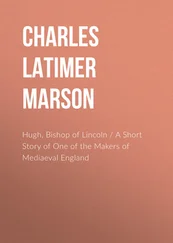Paul Vinogradoff - Villainage in England - Essays in English Mediaeval History
Здесь есть возможность читать онлайн «Paul Vinogradoff - Villainage in England - Essays in English Mediaeval History» — ознакомительный отрывок электронной книги совершенно бесплатно, а после прочтения отрывка купить полную версию. В некоторых случаях можно слушать аудио, скачать через торрент в формате fb2 и присутствует краткое содержание. Жанр: foreign_prose, Юриспруденция, История, foreign_edu, foreign_antique, на английском языке. Описание произведения, (предисловие) а так же отзывы посетителей доступны на портале библиотеки ЛибКат.
- Название:Villainage in England: Essays in English Mediaeval History
- Автор:
- Жанр:
- Год:неизвестен
- ISBN:нет данных
- Рейтинг книги:4 / 5. Голосов: 1
-
Избранное:Добавить в избранное
- Отзывы:
-
Ваша оценка:
- 80
- 1
- 2
- 3
- 4
- 5
Villainage in England: Essays in English Mediaeval History: краткое содержание, описание и аннотация
Предлагаем к чтению аннотацию, описание, краткое содержание или предисловие (зависит от того, что написал сам автор книги «Villainage in England: Essays in English Mediaeval History»). Если вы не нашли необходимую информацию о книге — напишите в комментариях, мы постараемся отыскать её.
Villainage in England: Essays in English Mediaeval History — читать онлайн ознакомительный отрывок
Ниже представлен текст книги, разбитый по страницам. Система сохранения места последней прочитанной страницы, позволяет с удобством читать онлайн бесплатно книгу «Villainage in England: Essays in English Mediaeval History», без необходимости каждый раз заново искать на чём Вы остановились. Поставьте закладку, и сможете в любой момент перейти на страницу, на которой закончили чтение.
Интервал:
Закладка:
The frankpledge system is a most conspicuous link between both sections of society in this way also, that it directly connects the subjugated population with the hundred court, which is the starting-point of free judicial organisation. Twice a year the whole of this population, with very few exceptions, has to meet in the hundred in order to verify the working of the tithings. Besides this, the class of villains must appear by representatives in the ordinary tribunals of the hundred and the shire: the reeve and the four men, mostly unfree men 78 78 See below, Essay I. chap. vi.
, with their important duties in the administration of justice, serve as a counterpoise to the exclusive employment of 'liberi et legales homines' on juries.
Civil disability of a villain as to his lord.
And now I come to the most intricate and important part of the subject—to the civil rights and disabilities of the villain. After what has been said of the villain in other respects, one may be prepared to find that his disabilities were by no means so complete as the strict operation of general rules would have required. The villain was able in many cases to do valid civil acts, to acquire property and to defend it in his own name. It is true that, both in theory and in practice, it was held that whatever was acquired by the bondman was acquired by the lord. The bondman could not buy anything but with his lord's money, as he had no money or chattels of his own 79 79 Bract. Note-book, pl. 1256: 'Et Ricardus dicit quod assisa non debet inde fieri quia predictus Iohannes dedit terram illam cuidam uillano ipsius Ricardi, et ipse uillanus reddidit terram illam domino suo sicut emptam catallis domini sui, et quod ita ingressum habuit per uillanum illum in terram illam ponit se super iuratam.' Liber Assisarum, ann. 41. pl. 4. f. 252, shows that the statute de religiosis could be evaded by the lord entering into his villain's acquest. 'Levesque d'Exester port un Assise de no. diss. vers le tenaunt et Persey pur Leuesque en euidence dit, que un A. que fuit villeine le Evesque come de droit de sa Eglise purchase les tenements a luy et ses heyres et morust seisie, apres que mort entra B. come fitz et heire, sur que possession pur cause de villeinage entra Leuesque.— Wich. Home de religion ne puit pas recoverer per assise terre si title de droit ne soit troue en luy, et ou le title que est trouue en Leuesque est pur cause de la purchace de son villein, en quel cas Leuesque ne fuit compellable de entre sil nust vola mes puit auer eu ses seruices, et le statute voit Quod terrae et tenementa ad manum mortuam nullo modo deueniant, per que il semble que nous ne possomus pas doner iudgement pur Leuesque en ceo cas. Sanke : de son villein ne puit il pas leuer ses seruices, ne accepter lesse par sa maine, car a ceo que ieo entend par acceptacion de homage ou de fealty per sa maine il serra enfraunchi, per quey necessite luy arcte dentre, et le statut nestoit pas fait mes de restreindre purchaus a faire de nouel, et non pas a defaire ceo qe fuit launcien droit dez eglises. Et sur ceo fuerent aiournes en common bank, et illonque le judgement done pur Leuesque sans difficultie,' etc. (See also the report of the same case in Y.B. Mich. 41 Edw. III, pl. 8. f. 21.)
. But the working of these rules was limited by the medieval doctrine of possession. Land or goods acquired by the serf do not eo ipso lapse into his lord's possession, but only if the latter has taken them into his hand 80 80 Bracton, f. 25: 'Si … stipulatus sit servus sibi ipsi, et non domino, id non statim acquiritur domino, quamuis illud (corr. ille) sit sub voluntate et potestate sua, antequam dominus apprehensus fuerit possessionem. Quod quidem impune facere poterit, si voluerit, propter exceptionem,' etc. Fitz. Abr. Vill. pl. 22 (Pasch. 35 Edw. III): 'Si le villen le roy purchase biens ou chatteux le properte de eux est en le roy sauns seisier. Mes auter est de auter home, etc. Mes sil purchas terre le roy doit seisier, etc. car Thorp. dit que terre demurt terre tout temps, mes biens come boefs ou vache puit estre mange.'
. If the lord has not done so for any reason, for want of time, or carelessness, or because he did not choose to do so, the bondman is as good as the owner in respect of third persons. He can give away 81 81 Bracton, f. 25 b: 'Sic constat, quod qui sub potestate alterius fuerit, dare poterit. Sed qualiter hoc cum ipse, qui ab aliis possidetur, nihil possidere possit? Ergo videtur quod nihil dare possit, quia non potest quis dare quod non habet, et nisi fuerit in possessione rei dandae. Respondeo, dare potest qui seisinam habet qualemcunque, et servus dare potest,' etc. In case of an execution for debt due to the king the goods of the villain were to be taken only when the lord's goods were exhausted. Dialog. de Scacc. ii. 14. p. 229.
or otherwise alienate land or chattels, he has the assize of novel disseisin to defend the land, and leaves the assize of mort d'ancestor to his heirs. In this case it would be no good plea to object that the plaintiff is a villain. In fact this objection can be raised by a third person only with the addition that, as villain, the plaintiff does not hold in his own name, but in the name of his lord 82 82 Bracton, f. 190: 'Et non competit alicui hujusmodi exceptio de villenagio, praeterquam vero domino, nisi utrumque probet, scilicet quod villanus sit et teneat in villenagio, cum per hoc sequatur, quod ad ipsum non pertineat querela sive assisa, sed ad verum dominum, et ideo cadit assisa quantum ad personam suam et non quantum ad personam domini.' Cf. Britton, i. 325.
. A third person cannot except against a plaintiff merely on the ground of his personal status. As to third persons, a villain is said to be free and capable to sue all actions 83 83 Britton, i. 199; Littleton, 189; Bract. Note-book, pl. 1025: 'Assisa venit recognitura utrum una uirgata terre cum pertinenciis in R. sit libera elemosina pertinens ad ecclesiam Magistri Iohannis de R. de R. an laicum feodum Gaufridi Beieudehe. Qui venit et dicit quod non debet inde assisa fieri quia antecessores sui feoffati fuerunt a conquestu Anglie ita quod tenerent de ecclesia illa et redderent ei per annum x. solidos.... Iuratores dicunt quod terra illa est feodum eiusdem ecclesie ita quod idem G. et antecessores sui semper tenuerunt de ecclesia.... Et dicunt quod idem Gaufridus est natiuus Comitis Warenne et de eo tenet in uilenagio aliud tenementum. Postea uenit Gaufridus et cognouit quod est uillanus Comitis Warenne. Postea concordati sunt,' etc.
. This of course does not mean that he has any action for recovering or defending his possession of the tenements which he holds in villainage , but this disability is no consequence of his servile blood, for he shares it with the free man who holds in villainage; it is a consequence of the doctrine that the possession of the tenant in villainage is in law the possession of him who has the freehold. It may be convenient for a villain as defendant to shelter himself behind the authority of his lord 84 84 Example, Fitz. Abr. Villen. 16. The proper reply to such a plea is shown by Bract. Note-book, pl. 1833: 'Et Iohannes dicit quod hoc ei nocere non debet, quia quicquid idem dicat de uillenagio, ipsemet ut liber homo sine contradiccione domini sui terram illam dedit Iohanni del Frid patri istius Iohannis pro homagio et seruicio suo … Consideratum est quod predictus Iohannes recuperauit seisinam suam, et Richerus in misericordia.' Liber Assis. ann. 43. pl. 1. f. 265 gives the contrary decision: 'Lassise agarde et prise, per quel il fuit troue quil [le defendant] fuit villein al Counte.... mes troue fuit ouster que le Counte ne fut unques seisie de la terre, ne onques claima riens en la terre, et troue fuit que le plaintif fuit seisie et disseisie. Et sur ceo, le quel le plaintif recouerer, ou que le brief abateroit sont ajornes deuant eux mesmes a Westminster. A que jour per opinion de la Court le briefe abatu, per que le plaintif fuit non sue,' etc.
, and it was difficult to prevent him from doing so, although some attempts were made by the courts even in this case to distinguish whether a person had been in possession as a dependant or not. But there was absolutely nothing to prevent a villain from acting in every respect like a free man if he was so minded and was not interrupted by his lord. There was no need of any accessory action to make his acts complete and legal 85 85 A different view is taken by Stubbs, i. 484.
. Again we come to an anomaly: the slave is free against everybody but his lord.
Интервал:
Закладка:
Похожие книги на «Villainage in England: Essays in English Mediaeval History»
Представляем Вашему вниманию похожие книги на «Villainage in England: Essays in English Mediaeval History» списком для выбора. Мы отобрали схожую по названию и смыслу литературу в надежде предоставить читателям больше вариантов отыскать новые, интересные, ещё непрочитанные произведения.
Обсуждение, отзывы о книге «Villainage in England: Essays in English Mediaeval History» и просто собственные мнения читателей. Оставьте ваши комментарии, напишите, что Вы думаете о произведении, его смысле или главных героях. Укажите что конкретно понравилось, а что нет, и почему Вы так считаете.












